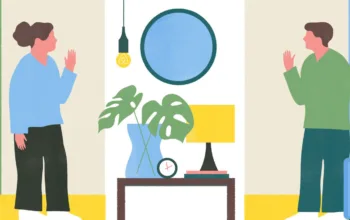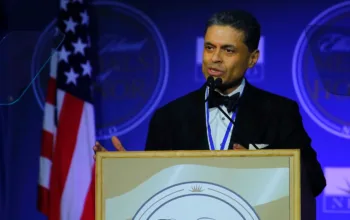A ballot question will let Arizona voters decide if they want to raise taxes on the top 1 percent for the first time in 50 years.
Arizona voters may soon get to decide if rich families should pay for teachers’ raises.
Last week, a Maricopa County judge allowed the Invest in Education Act to remain on November’s ballot, rejecting claims from business groups that the language is misleading. If passed, the ballot measure would nearly double income tax rates on the top 1 percent of earners in Arizona, reversing decades of budget cuts to the state’s public schools.
Teachers submitted the proposal in June, after going on strike for six days and closing nearly all of the state’s 2,000 public schools. They said the tax hike is crucial to pay for the new school funding bill signed by Republican Gov. Doug Ducey during the teacher strike. The bill gives $600 million more to schools each year, but doesn’t include a plan to pay for most of it. (At the time Ducey suggested a future economic boom would bring in enough money to cover it.)
So teachers decided that rich Arizonans should pay for it.
Raising income taxes in a state as red as Arizona is no easy feat. Only voters in two states — California and Maine — have managed to raise income taxes through a ballot measure in the past 50 years. But the widespread teachers’ strikes that swept conservative states earlier this year, including Arizona, Oklahoma, and West Virginia, have shined a spotlight on the harm that Republican tax-cutting policies have unleashed on public schools.
But instead of raising taxes on businesses and wealthy families to boost school funding, which is what striking teachers wanted, state lawmakers raised taxes mostly on middle-class families. Such a move could end up hurting Republicans in those states. If voters approve the Invest in Education Act in Arizona, and a similar ballot measure in Colorado, it will send a strong message about who they think should foot the bill.
Most US voters think raising taxes to pay teachers more is a good idea
The outcome of the ballot initiative in Arizona will say a lot about the future of the Republican Party, which has long identified itself as the anti-tax party. If the referendum fails, it would signal that voters in red states are still as averse to raising taxes as their Republican representatives are. If the referendum passes, it would be a striking rejection of the party’s tax-cutting mantra.
Right now, there’s evidence of shifting attitudes among voters, particularly Republicans. A June poll showed that 65 percent of voters in Arizona support raising taxes on the rich as proposed in the Invest in Education Act. About 43 percent of Republican voters approved of the idea.
A few national surveys have also found broad support for hiking taxes. In May, a New York Times poll found that two-thirds of voters agreed with the idea of raising taxes to pay teachers more. A majority of Republicans — 56 percent — said they would favor raising taxes too. Recent surveys from NPR and the Associated Press came to similar conclusions.
Earlier this month, Colorado teachers were able to get their own measure onto the November’s ballot. The initiative, called Amendment 73, would raise corporate tax rates and individual income taxes for anyone earning more than $150,000 a year. Instead of the current flat income tax rate of 4.63 percent, the new tax rates would reach up to 8.25 percent for people who earn more than $500,000.
Colorado has twice tried — and failed — to raise income taxes through a ballot measure.
If Amendment 73 passes, and if Arizona voters pass the Invest in Education Act, it would be a big deal.
Arizona hasn’t raised income taxes on the rich since 1967
If Arizona voters pass the Invest in Education Act in November, that would reverse a 50-year trend of cutting taxes — or not raising taxes — on the richest families in the state. The last time lawmakers hiked the top income tax rate was in 1967, when it reached 8 percent. That tax rate stayed in place until 1990, when lawmakers raised taxes on low-income families and lowered the 8 percent top tax rate on wealthy families to 7 percent.
Since then, Republican lawmakers have slashed the top tax rates to the current rate of 4.54 percent for the state’s wealthiest workers. The reason for cutting taxes is always the same: to supercharge the economy.
But economists have disputed such claims.
Timothy Hogan, an economics professor at Arizona State University, analyzed the impact of the income tax cuts and came to this conclusion in a 2016 research study:
Proponents of the income tax reductions in Arizona have contended that income taxes inhibit economic growth. Yet there is no empirical evidence that the changes to Arizona’s income taxes since the early 1990s have resulted in stronger economic performance in Arizona. Indeed, aggregate growth in Arizona was considerably faster prior to the income tax modifications than it has been in recent years.
Hogan said those tax cuts are largely responsible for the state’s decision to gut funding for public schools. In 2017, the state ranked at the bottom in the United States based on how much it spends per student, and how much it pays teachers.
That’s why teachers went on strike in May.
Lawmakers gave teachers a raise, but don’t know how to pay for it
Arizona teachers returned to class on May 4, ending a six-day strike that closed nearly all of the state’s 2,000-plus schools. Educators returned to work after the state legislature gave them a 20 percent salary raise over three years and some extra funding for public education.
But there’s a catch: The funding would come from other middle- and working-class Arizonans.
Republican Gov. Doug Ducey signed a budget bill on May 3 that gives teachers the 20-percent pay raise over three years, a cost of $600 million a year. Lawmakers offset part of the cost with an $18 car registration fee that is expected to raise $149 million a year. Such a fee is, of course, regressive — it will impact low-income families more than higher-income families because the fee represents a larger chunk of the former’s income.
The bill also included a change in how the state desegregates public schools, which is expected to free up about $18 million a year in state money. Most of that cost will be shifted to homeowners, through higher property taxes in low-income school districts.
These two changes will not be enough to generate even half of $600 million needed to cover the teacher raises and new funding for schools included in the bill passed last week. Ducey is counting on optimistic economic growth projections to bring in more revenue to pay for some of it — something Republicans love to promise but have little control over.
Raising taxes seems like the only option
Teachers and many parents didn’t seem convinced that the state would suddenly find an extra $400 million to cover the teacher pay raises it passed into law. So the Invest in Education Act is the only concrete solution to raise the money.
The measure would raise the income tax rate from 4.54 percent to 8 percent for individuals who make more than $250,000 or households that earn more than $500,000. The rate would jump to 9 percent for individuals who make more than $500,000 and households earning more than $1 million. Those would be the highest top income tax rates in Arizona’s history, and the measure is expected to raise about $690 million each year for the state’s public schools.
Unsurprisingly, the ballot question has triggered fierce resistance from conservative groups and business associations, who claimed it would hurt the economy. The Arizona Chamber of Commerce sued to block the initiative, saying that the wording of the ballot question was misleading. But on Thursday, a Maricopa County Superior Court Judge rejected that argument, and allowed the question to proceed (the chamber is appealing to the state’s Supreme Court).
So it seems highly likely that voters will get a chance to raise taxes (or not) on their richest neighbors. Even the conservative editorial board at the Arizona Republic, which called the tax hikes a “terrible” idea, said it might eventually support the measure:
Gov. Doug Ducey and the Legislature’s GOP majority put Arizona voters in a bad spot by failing to provide a revenue source for K-12 funding increases. The leadership vacuum they created was filled by a flawed ballot measure that raises taxes on the wealthy – and gives voters an awkward and unfair choice… And who knows? It may be a saleable idea even in this conservative state, where the support for teachers and education was robustly displayed before and during the recent #RedforEd led teacher walkout.
Author: Alexia Fernández Campbell


